Ex: https://atlanticcenturion.wordpress.com
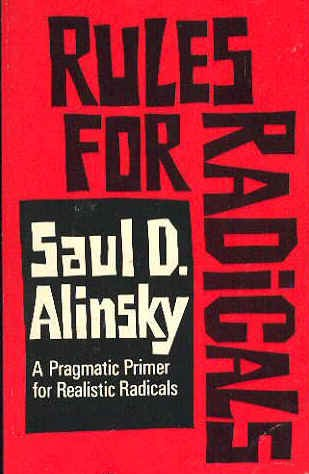 Saul Alinsky
Saul Alinsky
Rules for Radicals: A Practical Primer for Realistic Radicals
New York: Random House, 1971.
Rules for Radicals is [in]famous for its purported influence, and that of author Saul Alinsky, among liberal and left-wing ideologues and politicians in the United States, including Barack Obama and Hillary Clinton. The political bent of this classic but reviled work by a community organizer from Chicago is shown on the very first page of the introduction by referencing “Joe McCarthy’s holocaust.” [It should be noted of course that declassified documents have revealed Senator McCarthy was pretty much always right about who was a bolshevik, but I digress].
The catch though is that the book isn’t particularly ideological, even if the author’s sympathies are blatantly clear and he writes from the assumption that you believe in the same things he does. What Rules for Radicals is much more interested in is how to create the most effective community organizers, and how they should communicate if they want to be effective. Think of it as far-left metapolitics manual. There is thus a heavy focus on semantics, networks, pragmatism, and presentation. Being internally honest about power and self-interest in politics, understanding your audience, and using familiar terms rather than alien highbrow concepts are all considered critical. In (((Alinsky’s))) world of hyper-realism and self-rationalizing, things like principles, morals, qualms about the means used to achieve ends, and consistency are baggage and vices, not politically expedient values.
With that in mind it isn’t hard to see why the cuckservative, muh principles crowd that dominates the Republican party seems to be losing ground in our society at every turn. They cry that liberals don’t fight fair. They have what French New Right author Guillaume Faye calls “mental AIDS,” no immune system against the aggressive ideology of their enemies, whom they grant moral hegemony to. But what they do have, if not organized defense, is what social psychologist (((Jonathan Haidt))) calls the moral foundation of sanctity—they can be disgusted by things on the basis of their violation of core values.
(((Alinsky))) knows what disgusts these people. He advises against trampling on the American flag or burning it, for example, since that drives ordinary people away from radical politics. He instead says the radical should frame the values of that flag as having been perverted by the enemy. This is all too familiar a suggestion to readers in the current year, given leftist appeals to the validity of the Constitution of all things, and the redefinition of American history as having always been a march towards the equality of all people on planet Earth: blacks and Whites, men and women, heterosexuals and deviants, legal immigrants and illegal immigrants, documented persons and undocumented persons, etc. The only thing standing in the way are those evil Republicans, who have perverted everything that Hamilton the musical is about. See how that works? A lot better than saying burn it all down—it creates the impression you’ve been robbed of something that should be yours.
The enemy of the cause must be black-and-white. (((Alinsky))) cites the Founding Fathers, who in their Declaration of Independence had not one good thing to say about the Crown, only listing its transgressions. For if one is to make an inspiring case to the people, who will have to risk everything for the cause, it had better be one that leaves no doubts about its righteousness. You can’t be concerned about how Britain provided soldiers to defend against Indian attacks or kept the sea lanes safe for commerce. Making these kinds of black-and-white arguments in and of itself is totally apolitical; they could be for either side.
One insight in particular felt very familiar to me, echoing a Hillary Clinton speech leaked during the campaign which had been privately given to a multinational bank. The Supreme Catlady spoke about needing to have a public face and a private face as a politician, something ((Alinsky))) would readily endorse. In practice, one sells two different positions to two different audiences, which is in line with the whole ends-outweigh-means thing. Of course I am for free trade and open borders. No I am not for “open borders;” that’s a right-wing smear. On that note, (((Alinsky))) says the radical must always advocate for 100% to the community he wants to organize, but as soon as negotiations begin with the powerful, take anything that moves the needle, even 30%. Say one thing and do another, as long as you are on target. That’s the utility of extremism in politics.
 Thus, (((the long march through the institutions))) has a road-map that will take it up the mountain, while pseudo-reactionary Republican stonewalling of issues—for as long as is politically required by their constituents until leftward change is a done deal—leads to nothing. There is a reason why some of Bill Clinton’s campaign speeches from 1996 sound like Donald Trump’s in 2016, and it’s because the left has succeeded into converting many Goldwater-Reagan era Republicans into 1990s’ Democrats. Homosexual marriage will soon be a conservative issue when faced with transgenderism. And the latter will in time be accepted as well on the Beltway right. (((Alinsky’s))) methods move the Overton window; cuckservatives merely follow Overton movements.
Thus, (((the long march through the institutions))) has a road-map that will take it up the mountain, while pseudo-reactionary Republican stonewalling of issues—for as long as is politically required by their constituents until leftward change is a done deal—leads to nothing. There is a reason why some of Bill Clinton’s campaign speeches from 1996 sound like Donald Trump’s in 2016, and it’s because the left has succeeded into converting many Goldwater-Reagan era Republicans into 1990s’ Democrats. Homosexual marriage will soon be a conservative issue when faced with transgenderism. And the latter will in time be accepted as well on the Beltway right. (((Alinsky’s))) methods move the Overton window; cuckservatives merely follow Overton movements.
Another important (((Alinsky))) insight is that you need to have something of a “vague” vision of a better, inspiring future. At the same time, don’t become a single-issue organization. While 88-point policy plans may win over wonkish autistes, if you actually want to create a large community organized around common goals and oriented towards a common opponent, you need to go broader and less specific on the details. Consider the mental gymnastics that fiscally conservative Republicans go through to sell trickle-down economics—lower taxes on people and corporate persons who are responsible for providing employment so that they can expand operations and recruit more human capital, owing to their higher net income from reduced taxation of their business. Democrats simply run on a platform of doling out free shit to net tax recipients, including but not limited to a better economy jobs, social programs, and universal pre-kindergarten. Or they just blather about equality for 20 minutes and call it a historic speech. That’s a lot easier than talking about family values, national interest, civic virtue, trade policies, foreign affairs, etc. Just say we all deserve to be equal and my agenda is to make it happen. It’s an easy sell and no one really cares about the particulars other than critics. So, long live the ethnostate. What ethnostate? Doesn’t matter yet.
The long discussion on means versus ends is particularly useful. (((Alinsky))) talks about how people lionize Indian independence leader Mahatma Gandhi as a pacifist, but notes that pacifism was really the only means available in the first place of resisting the British at the time. He jokes that Gandhi must have noticed how Indians seemed to sit around all day in prayer or mediation, and then told them to shout slogans while they were doing it. Probably not the exact chain of events, but that is effectively what happened—multitudes of people engaging in sit-in protests. Which India banned almost immediately after independence—since those who usurp power generally, and correctly, wish to keep it and prevent the next batch of revolutionaries from unseating them in the same way they did in their predecessors. (((Alinsky))) also cites Lenin’s remarks about how the bolsheviks had to say they were for peace—well until they didn’t have to say they were for peace. In other words, the chosen means are just the most effective ways of reaching an end. If they don’t work, you don’t use them. If they stop working, you change them. And if they’ve never worked, you are doing it wrong.
 (((Alinsky))) tactics work and continue to work for the left. Whether it’s calling every opponent a racist, or framing the enemy as always being a fascist, or having no attachment to anything that doesn’t effectively further the political power of their faction, the left we are dealing with now is smarter on culture, coalition, and community outreach than movement conservatives have ever been. The left, in true (((Alinsky))) style, sees itself on the side of “angels,” while its enemies are “devils.” The Beltway right only uses the term “crusade” to refer to tax policy adjustments.
(((Alinsky))) tactics work and continue to work for the left. Whether it’s calling every opponent a racist, or framing the enemy as always being a fascist, or having no attachment to anything that doesn’t effectively further the political power of their faction, the left we are dealing with now is smarter on culture, coalition, and community outreach than movement conservatives have ever been. The left, in true (((Alinsky))) style, sees itself on the side of “angels,” while its enemies are “devils.” The Beltway right only uses the term “crusade” to refer to tax policy adjustments.
The crucial question—Why I am writing about Rules for Radicals? Simply put, the Alt-Right is a radical movement that is interested in community organizing and propaganda. (((Alinsky))) wanted to organize “Have-nots” and “Have a little, want mores” against the “Haves,” and for them to meme effectively to that end. The Alt-Right wants to organize White people against the occupation government (a globalist coalition comprised of Davos men, Hart-Celler Americans, and overseas Israelis), and for them to meme effectively to that end. Reading Rules for Radicals won’t change anything you believe ideologically, since (((Alinsky))) never really makes the case for what he believes in anyway. (Even if he did, if you are reading this you already know he is wrong). But hopefully, young radicals, you will take some lessons from it about how to better approach your task.
Probably the most important section for our purposes is the author’s drill-down of how he believes power works. He gives us 13 rules: I will attempt to give some translation:
- “Power is not only what you have, but what the enemy thinks you have.” – I have read innumerable articles in recent months from the lying press about how the GOP is full of crypto-White nationalists. Sounds good. Big if true.
- “Never go outside the expertise of your people.” – We’re not going to get most people to do things they have no habit of doing. We need to play to the strengths of our existing human resources.
- “Whenever possible, go outside the expertise of the enemy.” – This and the above rule are standard Sun Tzu; know the enemy and know yourself or else you will be defeated. We must always stay abreast of the opposition, always be more informed, and always make them look stupid.
- “Make the enemy live up to its own book of rules.” – There are two key forms of this: concern-trolling and malicious compliance. Doing so will stress them out by increasing their cognitive dissonance load, bleed them of resources, and generally waste their time and energy. You can also bait your opponents into producing specific outcomes if they are inflexible and dogmatic enough.
- “Ridicule is man’s most potent weapon.” – Most of the Alt-Right’s troll ops consist of making a mockery of things. Ditto for our memes and critiques, e.g. cuckservative. It will probably go down as one of the greatest political slurs of all time: implying that your opponent gets off to watching his country be destroyed while his wife’s son votes against him. Cuckservative captures perfectly, and ridiculously, how the target serves every interest but the national.
- “A good tactic is one your people enjoy.” – Trolling. Shitposting. Meme magick. It never gets old because there is always something new to provide a perspective on, or some new journalist to troll, or a comments section to raid, or a viral media campaign to be fought.
- “A tactic that drags on too long becomes a drag.” – I think the only area the Alt-Right sees diminishing returns on is putting out too blackpilled of a message, or being too gloom and doom. People don’t really want to hear that all the time, even when it has to be said. Things getting worse is after all part of the sales pitch as to why the Alt-Right’s solutions are necessary. On the other hand, we have to have a positive and future-oriented message to put out, and that reaches a bigger audience than commiseration.
- “Keep the pressure on. Never let up.” – I tend to think this won’t be much of a problem because there is nothing the regime can offer us that would be satisfying other than its resignation.
- “The threat is usually more terrifying than the thing itself.” – This certainly works in our favor given how (((neurotic))) the people we are engaged in holy memetic warfare with are. Even the implication of our presence somewhere or in something is enough to produce media hysteria and maelstroms of kvetching.
- “The major premise for tactics is the development of operations that will maintain a constant pressure upon the opposition.” – At the moment this is our endless streams of daily content across multiple platforms, something we should continue to scale up and diversify.
- “If you push a negative hard enough, it will push through and become a positive.” – We want to get to a point where being labeled by the establishment as a racist, sexist, or antisemite is a sign of having done something correct, being that bad people are saying it about you.
- “The price of a successful attack is a constructive alternative.” – In other words, to win you actually need an answer to the issue. It can’t just be about opposition. We must be more than reactionary.
- “Pick the target, freeze it, personalize it, and polarize it.” – This is my favorite and I think Alt-Right troll ops have done this quite well. First you get ahold of a luegenpresse journalist’s attention. Then you apply the other above tactics to him or her. Finally you get some sort of overdone reaction from them AND their supporters against you, which helps reinforce your own battle lines by showing that the issue you are up against is supported by x and x-plus, all of whom are against you. Many journalists noted during the 2016 presidential campaign that if one were of a Semitic surname (or known to follow a cult of volcanic demonology) and said something critical of Donald Trump, that he or she would be targeted and harassed on their social media or in the comments section. They began to reach out to one another about this and write about the responses they were getting, many going as far as labeling themselves with the triple parentheses symbol in solidarity. So what had basically happened was that our argument all along that overseas Israelis were uniquely opposed to nationalism in the United States was proven—by getting them to band together and admit that they were, and that they were proud about it too. See, all those people who hate Trump have (((something in common)))!
I think the Alt-Right is already in something of an unholy alliance with (((Alinsky))). That our trademark tactic is trolling while that of our enemies is banning and/or overreacting says something about how much society has been restructured since the 1960s. We’re the ones causing headaches for the regime, we’re the ones doing the culture-jamming, we’re the ones speaking on behalf of a marginalized class, we’re the ones tipping the sacred cows, and we’re the ones calling for revolutionary change. The meme war favors the offense.





 del.icio.us
del.icio.us
 Digg
Digg
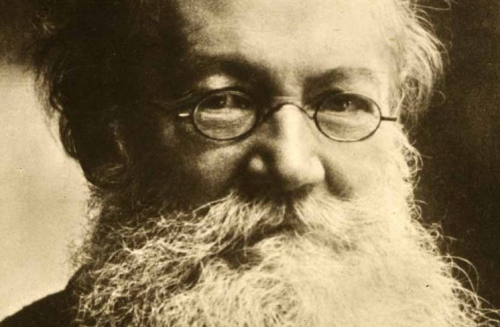















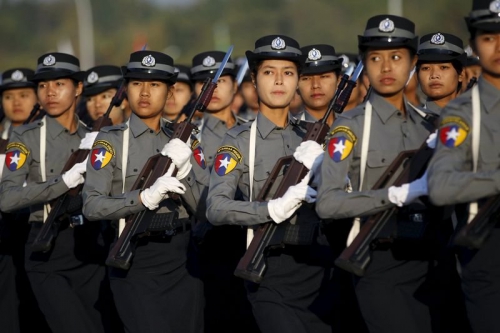


 Le bouquin devient un classique, sans que l’on ait compris pourquoi, au milieu de cette littérature du dix-huitième siècle décadent, si proche de nos marottes et de nos caprices de vieux. Le livre recycle le style journalistique venu d’Angleterre, comme toute la décadence française et même européenne, le matérialisme et la superficialité. A la même époque, dans un article passionnant (je l’ai étudié ailleurs), Jonathan Swift se demande par quoi on va remplacer le christianisme en Angleterre ; ou comment le bourgeois british aux affaires pourrait se nourrir d’enfants irlandais (en 1846 ce même bourgeois libéral le prendra au mot). C’est le même bourgeois libéral qui veut déclencher une guerre contre la Russie – pour protéger ses Indes ou la Turquie ottomane - durant tout le dix-neuvième siècle ! Car le gouvernement anglais obéit à sa presse, remarque Tocqueville dans ses Souvenirs. Surtout quand il s’agit de faire la guerre à la Russie.
Le bouquin devient un classique, sans que l’on ait compris pourquoi, au milieu de cette littérature du dix-huitième siècle décadent, si proche de nos marottes et de nos caprices de vieux. Le livre recycle le style journalistique venu d’Angleterre, comme toute la décadence française et même européenne, le matérialisme et la superficialité. A la même époque, dans un article passionnant (je l’ai étudié ailleurs), Jonathan Swift se demande par quoi on va remplacer le christianisme en Angleterre ; ou comment le bourgeois british aux affaires pourrait se nourrir d’enfants irlandais (en 1846 ce même bourgeois libéral le prendra au mot). C’est le même bourgeois libéral qui veut déclencher une guerre contre la Russie – pour protéger ses Indes ou la Turquie ottomane - durant tout le dix-neuvième siècle ! Car le gouvernement anglais obéit à sa presse, remarque Tocqueville dans ses Souvenirs. Surtout quand il s’agit de faire la guerre à la Russie. Reprenons le scolaire et incompris passage sur les persans à Paris. Ils deviennent des célébrités exotiques et on les « reproduit ». On est dans une société de l’image, de la curiosité extatique momentanée, de la pensée jetable, de l’icône culturelle :
Reprenons le scolaire et incompris passage sur les persans à Paris. Ils deviennent des célébrités exotiques et on les « reproduit ». On est dans une société de l’image, de la curiosité extatique momentanée, de la pensée jetable, de l’icône culturelle :


 Le terme de « déterritorialisation » nous vient des philosophes post-modernistes Gilles Deleuze et Félix Guattari dans leur trilogie « Capitalisme et schizophrénie » : Anti-Œdipe, Mille Plateaux, et Qu’est-ce que la philosophie ?. Il s'agit d'un phénomène qui conduit un territoire, un objet, à perdre son usage conventionnel ou premier. Ce phénomène s'accompagne d'un processus de reterritorialisation qui redonne un usage à l'espace, au territoire ou à l'objet. Pour les post-modernes, cela pouvait favoriser le détournement, par l'art, de l'objet ou du support.
Le terme de « déterritorialisation » nous vient des philosophes post-modernistes Gilles Deleuze et Félix Guattari dans leur trilogie « Capitalisme et schizophrénie » : Anti-Œdipe, Mille Plateaux, et Qu’est-ce que la philosophie ?. Il s'agit d'un phénomène qui conduit un territoire, un objet, à perdre son usage conventionnel ou premier. Ce phénomène s'accompagne d'un processus de reterritorialisation qui redonne un usage à l'espace, au territoire ou à l'objet. Pour les post-modernes, cela pouvait favoriser le détournement, par l'art, de l'objet ou du support. Guy Di Méo proposait en 1996 dans Les territoires du quotidien une définition qui pourrait apparaître comme dépassée et incomplète mais qui conserve pourtant une grande pertinence : « Le territoire est une appropriation à la fois économique, idéologique et politique (sociale, donc) de l'espace par des groupes qui se donnent une représentation particulière d'eux-mêmes, de leur histoire. » Cette définition appuie encore ici notre développement : il y a territoire à partir du moment où il y a appropriation par un groupe humain. Les « quartiers sensibles » sont pleinement des territoires au sens du géographe, et Michel Lussault le démontre assez bien dans son ouvrage De la lutte des classes à la lutte des places. La City de Londres est également un territoire à part entière, même si on peut en avoir une représentation négative.
Guy Di Méo proposait en 1996 dans Les territoires du quotidien une définition qui pourrait apparaître comme dépassée et incomplète mais qui conserve pourtant une grande pertinence : « Le territoire est une appropriation à la fois économique, idéologique et politique (sociale, donc) de l'espace par des groupes qui se donnent une représentation particulière d'eux-mêmes, de leur histoire. » Cette définition appuie encore ici notre développement : il y a territoire à partir du moment où il y a appropriation par un groupe humain. Les « quartiers sensibles » sont pleinement des territoires au sens du géographe, et Michel Lussault le démontre assez bien dans son ouvrage De la lutte des classes à la lutte des places. La City de Londres est également un territoire à part entière, même si on peut en avoir une représentation négative.
 Si nous sommes déracinés, c'est d'abord en raison des techniques et des technologies en particulier les transports, le numérique et l'accroissement de la vitesse qui concerne l'ensemble de notre existence, de la vitesse de nos véhicules à la vitesse d'envoi d'un courriel. Une abondante littérature peut aller dans ce sens, on mentionnera évidemment pour la réflexion sur la vitesse à Vitesse et politique, essai de dromologie, publié en 1977 par le philosophe et urbaniste Paul Virilio. On songera aussi, même si plus ancien, à La France contre les Robots, de Georges Bernanos, que nous avions chroniqué ou évidemment au Système technicien de Jacques Ellul.
Si nous sommes déracinés, c'est d'abord en raison des techniques et des technologies en particulier les transports, le numérique et l'accroissement de la vitesse qui concerne l'ensemble de notre existence, de la vitesse de nos véhicules à la vitesse d'envoi d'un courriel. Une abondante littérature peut aller dans ce sens, on mentionnera évidemment pour la réflexion sur la vitesse à Vitesse et politique, essai de dromologie, publié en 1977 par le philosophe et urbaniste Paul Virilio. On songera aussi, même si plus ancien, à La France contre les Robots, de Georges Bernanos, que nous avions chroniqué ou évidemment au Système technicien de Jacques Ellul.
 Readers of Counter-Currents will be familiar — and likely agreeable to — the notion that despite what you heard in school, most all the truly great writers of the XXth century were “men of the Right.” This has been the theme of books like Kerry Bolton’s Artists of the Right: Resisting Decadence,[1] or Jonathan Bowden’s Western Civilization Bites Back.[2]
Readers of Counter-Currents will be familiar — and likely agreeable to — the notion that despite what you heard in school, most all the truly great writers of the XXth century were “men of the Right.” This has been the theme of books like Kerry Bolton’s Artists of the Right: Resisting Decadence,[1] or Jonathan Bowden’s Western Civilization Bites Back.[2] Svensson is certainly straightforward from the start:
Svensson is certainly straightforward from the start: So mostly, Svensson falls back on miniscule tradition; Heinlein, for example, is hardly a Traditional thinker, even before his ’60s-hippie phase, but he certainly meets the “right-wing” criterion.
So mostly, Svensson falls back on miniscule tradition; Heinlein, for example, is hardly a Traditional thinker, even before his ’60s-hippie phase, but he certainly meets the “right-wing” criterion.
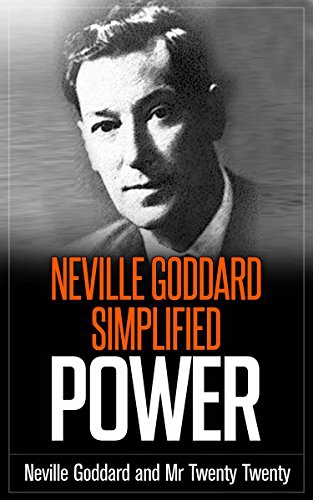 Indeed, interviewed elsewhere, Svensson sounds an awful lot like that modern exponent of the Hermetic Tradition Neville Goddard himself:
Indeed, interviewed elsewhere, Svensson sounds an awful lot like that modern exponent of the Hermetic Tradition Neville Goddard himself: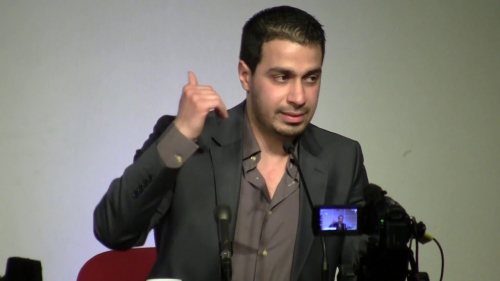

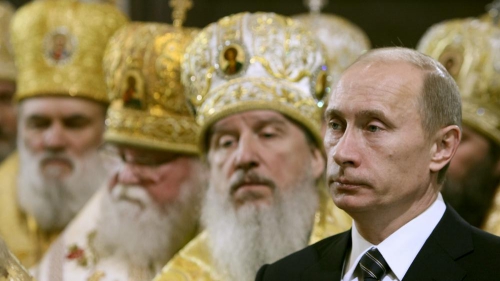



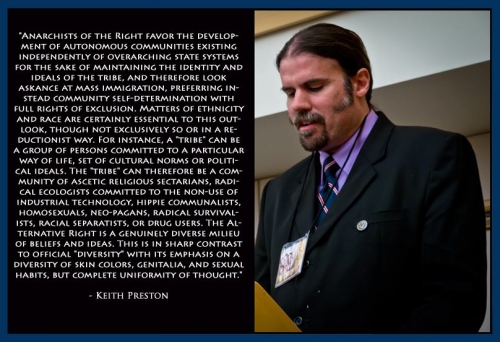
 The French intellectual historian Francois Richard identified three primary currents within the wider philosophical tradition of anarchism. The first of these is the classical socialist-anarchism that I have previously described that has as its principal focus an orientation towards social justice and uplifting the downtrodden. A second species of anarchism is the radical individualism of Stirner and the English and American libertarians, a perspective that posits individual liberty as the highest good. And still a third tradition is a Nietzsche-influenced aristocratic radicalism, or what the French call “anarchism of the Right” which places its emphasis not only on liberty but on merit, excellence, and the preservation of high culture.
The French intellectual historian Francois Richard identified three primary currents within the wider philosophical tradition of anarchism. The first of these is the classical socialist-anarchism that I have previously described that has as its principal focus an orientation towards social justice and uplifting the downtrodden. A second species of anarchism is the radical individualism of Stirner and the English and American libertarians, a perspective that posits individual liberty as the highest good. And still a third tradition is a Nietzsche-influenced aristocratic radicalism, or what the French call “anarchism of the Right” which places its emphasis not only on liberty but on merit, excellence, and the preservation of high culture. Perhaps the most famous intellectual associated with the Conservative Revolution was Ernst Junger, a veteran of World War One who became famous after publishing his war diaries in Weimar Germany under the title “Storms of Steel.” Much later in life, Junger published a work called “Eumeswil” which postulates the concept of the “Anarch,” a concept that is modeled on Max Stirner’s idea of the “Egoist.” According to Junger’s philosophy, an “Anarch” does not necessarily engage in outward revolt against institutionalized authority. Instead, the revolt occurs on an inward basis, and the individual is able to retain an inner psychic freedom by means of detachment from all external values and an inward retreat into one’s self. In some ways, this is a philosophy that is similar to currents within Buddhism and other Eastern philosophies.
Perhaps the most famous intellectual associated with the Conservative Revolution was Ernst Junger, a veteran of World War One who became famous after publishing his war diaries in Weimar Germany under the title “Storms of Steel.” Much later in life, Junger published a work called “Eumeswil” which postulates the concept of the “Anarch,” a concept that is modeled on Max Stirner’s idea of the “Egoist.” According to Junger’s philosophy, an “Anarch” does not necessarily engage in outward revolt against institutionalized authority. Instead, the revolt occurs on an inward basis, and the individual is able to retain an inner psychic freedom by means of detachment from all external values and an inward retreat into one’s self. In some ways, this is a philosophy that is similar to currents within Buddhism and other Eastern philosophies.
 It is also interesting to note that some of the late twentieth century proponents of individualist anarchism such as James J. Martin and Samuel E. Konkin III, the founder of a tendency within libertarianism known as agorism, were also proponents of Holocaust revisionism. Indeed, when I was doing research on the modern libertarian movement, I discovered that Holocaust revisionism was actually popular among libertarians in the 1970s, not on anti-Semitic or pro-Nazi grounds, but out of a desire to defend the original isolationist case against World War Two. Konkin himself was actually associated with the Institute for Historical Review at one point.
It is also interesting to note that some of the late twentieth century proponents of individualist anarchism such as James J. Martin and Samuel E. Konkin III, the founder of a tendency within libertarianism known as agorism, were also proponents of Holocaust revisionism. Indeed, when I was doing research on the modern libertarian movement, I discovered that Holocaust revisionism was actually popular among libertarians in the 1970s, not on anti-Semitic or pro-Nazi grounds, but out of a desire to defend the original isolationist case against World War Two. Konkin himself was actually associated with the Institute for Historical Review at one point. Dorothy Day was an American radical, a religious pacifist, and advocate of social justice, who combined anarchism and Catholic traditionalism. She was the founder of the Catholic Worker movement, and considered herself to be a supporter of both the Industrial Workers of the World and the Vatican.
Dorothy Day was an American radical, a religious pacifist, and advocate of social justice, who combined anarchism and Catholic traditionalism. She was the founder of the Catholic Worker movement, and considered herself to be a supporter of both the Industrial Workers of the World and the Vatican.
 Robert Dragan esquisse un portrait d'Aristote, père de la philosophie réaliste classique (ou peut-être simplement interprète d'une tradition ancienne européenne, car il ne parle jamais à la première personne). On oppose cette pensée à la philosophie idéaliste qui -la science ayant pu entre temps développer la connaissance de la nature- a vérifié que notre connaissance de la réalité du monde est relative, car elle passe par le prisme restreint de notre perception et de notre raison. Rien ne pourrait être certain car la réalité nous est inconnaissable. La théologie scolastique de l'Eglise (fille bâtarde, selon Voltaire, de la philosophie d'Aristote, mal traduite) revendiquait au contraire le réalisme aristotélicien : notre connaissance de l'univers, imparfaite, est néanmoins réelle. Le réaliste en induit une morale calquée sur l'adaptation au réel. L'idéaliste moderniste privilégie le sujet, jusqu'à l'amoralité comprise.
Robert Dragan esquisse un portrait d'Aristote, père de la philosophie réaliste classique (ou peut-être simplement interprète d'une tradition ancienne européenne, car il ne parle jamais à la première personne). On oppose cette pensée à la philosophie idéaliste qui -la science ayant pu entre temps développer la connaissance de la nature- a vérifié que notre connaissance de la réalité du monde est relative, car elle passe par le prisme restreint de notre perception et de notre raison. Rien ne pourrait être certain car la réalité nous est inconnaissable. La théologie scolastique de l'Eglise (fille bâtarde, selon Voltaire, de la philosophie d'Aristote, mal traduite) revendiquait au contraire le réalisme aristotélicien : notre connaissance de l'univers, imparfaite, est néanmoins réelle. Le réaliste en induit une morale calquée sur l'adaptation au réel. L'idéaliste moderniste privilégie le sujet, jusqu'à l'amoralité comprise.  Alain Cagnat livre une passionnante recension du livre de l'ami Philippe Baillet, 'L'autre Tiers-Mondisme, Des origines à l'islam radical', paru chez Akribeia. Notre ami est co-fondateur de la revue Totalité. L'ouvrage analyse une série de personnalités qui se sont révélées réfractaires à la bipolarité URSS/USA, mais démarquées des non-alignés, communistes, trotskistes ou chrétiens progressistes. Il s'agit de :
Alain Cagnat livre une passionnante recension du livre de l'ami Philippe Baillet, 'L'autre Tiers-Mondisme, Des origines à l'islam radical', paru chez Akribeia. Notre ami est co-fondateur de la revue Totalité. L'ouvrage analyse une série de personnalités qui se sont révélées réfractaires à la bipolarité URSS/USA, mais démarquées des non-alignés, communistes, trotskistes ou chrétiens progressistes. Il s'agit de :
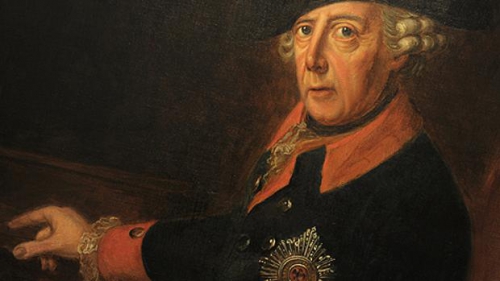

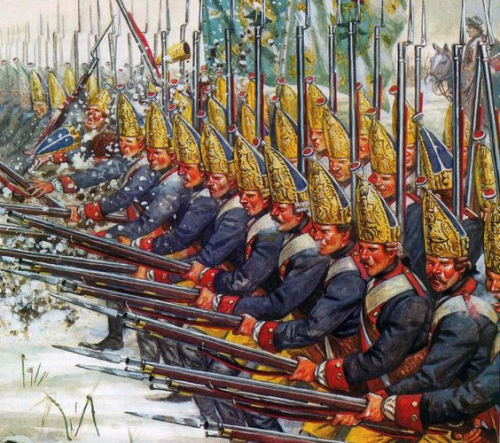 I note with amusement the statements on the value of a Russian alliance, the unreliability of a French guarantee, and the perfidy of Albion, observations which would no doubt resonate with many people in later centuries. Plus ça change !
I note with amusement the statements on the value of a Russian alliance, the unreliability of a French guarantee, and the perfidy of Albion, observations which would no doubt resonate with many people in later centuries. Plus ça change !


 Issu d'un double mouvement, né aux XVIIe et XVIIIe siècles avec les faux messies Sabbataï Tsevi et Jacob Frank (l’un faussement converti à l’islam et l’autre au catholicisme), ce messianisme apocalyptique s'opposant à Dieu et à la loi naturelle, par les conversions massives des sabbatéens à l'islam et des frankistes au catholicisme, va promouvoir l'athéisme au cœur de ces deux mondes, via notamment des loges maçonniques.
Issu d'un double mouvement, né aux XVIIe et XVIIIe siècles avec les faux messies Sabbataï Tsevi et Jacob Frank (l’un faussement converti à l’islam et l’autre au catholicisme), ce messianisme apocalyptique s'opposant à Dieu et à la loi naturelle, par les conversions massives des sabbatéens à l'islam et des frankistes au catholicisme, va promouvoir l'athéisme au cœur de ces deux mondes, via notamment des loges maçonniques. Dans la même perspective, le programme apocalyptique du choc des civilisations est partie intégrante du dessein messianique juif. Le projet de destruction du christianisme et de l’islam que l’on trouve au XIIIe siècle, dans le Zohar, a dirigé quelques siècles plus tard et à la suite de tentatives qui en posèrent les fondations, le sabbato-frankisme vers cet objectif.
Dans la même perspective, le programme apocalyptique du choc des civilisations est partie intégrante du dessein messianique juif. Le projet de destruction du christianisme et de l’islam que l’on trouve au XIIIe siècle, dans le Zohar, a dirigé quelques siècles plus tard et à la suite de tentatives qui en posèrent les fondations, le sabbato-frankisme vers cet objectif. Dans vos deux livres Occident et islam et Les mythes fondateurs du choc des civilisations, vous décrivez le choc des civilisations comme étant une doctrine programmée. Qui est à l’origine de cette stratégie qui vise à faire s’affronter les civilisations ?
Dans vos deux livres Occident et islam et Les mythes fondateurs du choc des civilisations, vous décrivez le choc des civilisations comme étant une doctrine programmée. Qui est à l’origine de cette stratégie qui vise à faire s’affronter les civilisations ?
 Dans une conférence récente, j’ai expliqué qu’Eric Zemmour s’inscrit dans ce mouvement (on peut y inscrire aussi Finkielkraut dans une certaine mesure), mais pas Bernard-Henri Levy. La Haskalah est un mouvement initié en 1780 par le philosophe juif allemand Moses Mendelssohn (1729-1786). Il propose aux juifs d’Europe de s’assimiler en apparence aux cultures européennes, mais tout en préservant leur identité. La Haskalah appartient au mouvement frankiste qui prône une assimilation par la conversion au catholicisme et/ou par la dissimulation de l’appartenance au judaïsme, pour détruire le monde chrétien de l’intérieur.
Dans une conférence récente, j’ai expliqué qu’Eric Zemmour s’inscrit dans ce mouvement (on peut y inscrire aussi Finkielkraut dans une certaine mesure), mais pas Bernard-Henri Levy. La Haskalah est un mouvement initié en 1780 par le philosophe juif allemand Moses Mendelssohn (1729-1786). Il propose aux juifs d’Europe de s’assimiler en apparence aux cultures européennes, mais tout en préservant leur identité. La Haskalah appartient au mouvement frankiste qui prône une assimilation par la conversion au catholicisme et/ou par la dissimulation de l’appartenance au judaïsme, pour détruire le monde chrétien de l’intérieur.
Was kann eine Revolution entzünden? Um hierauf eine Antwort zu finden, schildert Manuel Ionas das Leben und die Gedankenwelt des russischen Anarchisten Peter Kropotkin.
Das revolutionärste Buch der Bibel ist ihr letztes, die Apokalypse des Johannes. In einer ekstatischen Schau wird der Seher Johannes Zeuge kommender, gigantischer Umstürze, welche die Autorität Gottes gegen alle anderen Autoritäten, allen voran Babylons, der Großen, durchsetzen. Alles Gute kommt von oben, und das Heil arbeitet sich durch ein monumentales Zerstörungswerk an allem Mächtigen und Festgefügten voran.
Bei Peter Kropotkin (1842-1921) und anderen namhaften Anarchisten kommt alles Gute von unten. Kein Gott kümmert sich um die Unterdrückten, kein Herr der Herren oder König der Könige auf Wolken wird es richten, sondern sie, die bis dahin passiv Hinnehmenden tun es selbst. Wollte man die anarchistische Bewegung als kirchliches Mysterienspiel persiflieren, so wäre der berserkernde Wander-Revolutionär Michael Bakunin (1814-1876) Johannes der Täufer, der wohlerzogene Peter Kropotkin wäre Paulus. Und der Heiland?
Der Welterlöser wäre die Revolution. Keine Gestalt, nicht einmal eine Lehre oder ein Dogma, sondern einzig und allein ein Ereignis wurde zum Hoffnungsträger hochstilisiert und messianisch erwartet. Man hat die anarchistische Bewegung gern als religiöses Phänomen gedeutet und (ab)gewertet. Sie galt strengen Kommunisten marxistisch-leninistischer Prägung gleichsam als die pubertäre Phase des Sozialismus. Noch der letzte große, marxistisch orientierte Geschichtsschreiber Eric Hobsbawm bewegte sich ganz in dieser Tradition. Schwer taten sich die Bescheid-Wisser der bolschewistischen Kaderpartei mit dem unbedingten Freiheitsdrang, der vermeintlichen Fortschrittsfeindlichkeit sowie vor allem der konsequenten Anti-Staatlichkeit der sozialistischen Stiefbrüder.
Was aber gerade der Anarchismus, der nie eine einheitliche, geschlossene Bewegung gewesen ist, uns Heutigen in puncto Revolution bzw. Revolutionserwartung zu sagen hat, soll im Fortgang dieses Artikels am Beispiel eines scharfsinnigen Pamphlets Kropotkins aus dem Jahr 1880 vor Augen geführt werden.
Freiwillig in Sibirien: Lehrjahre eines russischen Aristokraten
Der oben gewagte Vergleich Kropotkins mit dem Völkerapostel Paulus erklärt sich aus dem radikalen Bruch mit dem Herkunftsmilieu, den beide vollzogen haben, um allein ihrer Mission gegenüber loyal zu sein. Peter Kropotkin war Spross eines Zweigs der altrussischen Herrscherdynastie der Rurikiden und behielt trotz Bekehrung zum Anarchismus stets die feinen Manieren seiner Klasse bei.
In seiner Haftzeit in der berühmten Peter und Paul Festung erhielt er einmal hohen Besuch vom Bruder Zar Alexander II., Großfürst Nikolai, der mit eigenen Augen sehen wollte, dass ein Mitglied der Aristokratie und ehemaliger Page de Chambre des Zaren tatsächlich als Staatsfeind einsaß. Seine Abstammung sorgte anfangs auch für anhaltendes Misstrauen im sozialrevolutionären Tschaikowski Kreis in St. Petersburg, in den der 30-Jährige 1872 um Aufnahme gebeten hatte. In einem Brief von 1878 wird ihm übellaunig das Fehlen jeder Führungs- und Organisationsfähigkeit attestiert. Ein Fanatiker der Ideen sei er, so lautet das Verdikt eines Kampfgenossen über den ersten umfassenden Theoretiker anarchistischer Ideen.
Doch war Peter Kropotkin keineswegs ein Stubenhocker, der vor der Anschauung in die heile Welt der Theorie floh. Schon in jungen Jahren vollzog er einen Schritt der Emanzipation, der allenthalben für Kopfschütteln gesorgt hatte: 1862 ersuchte er um eine Versetzung in den Stab des Militärgouverneurs von Ost-Sibirien. Es war eine Flucht vor einer Karriere am Hofe des Zaren, zu dem er zuvor noch als Page aufgeblickt hatte, da Alexander II. als Befreier der Bauern galt. Es war aber auch eine Flucht vor dem allmächtigen Vater, der auf seinen Ländereien wie ein Kasernenkommandant regierte, obwohl er nicht einmal zu den grausamsten seiner Klasse gehörte. Bei den Bauern seines Vaters hatte der sensible Junge schon früh den Zusammenhalt und die menschliche Wärme einer unterdrückten Gruppe kennengelernt.
Diese Eindrücke vergaß er nie und nahm sie mit in die Amur-Region. Dort, entrückt von Zivilisation und Hofglanz, vollzog sich seine Bekehrung zu anarchistischen Grundideen. Später wird Kropotkin, der sich in dieser Zeit intensiv mit Geographie und Biologie beschäftigte, immer wieder auf soziale Phänomene in sibirischen Stammesgesellschaften wie auch in der Tierwelt zu sprechen kommen.
Bei den Tschuktschen im fernen Osten formten sich die Eckpfeiler seiner Überzeugungen, wie sie von Anarchisten vertreten wurden. Zu ihnen gehören: Tradition statt Zivilisation, Gemeinschaft statt Staat und Freiheit statt Autorität. Angeleitet vom ähnlich empfindenden Gouverneur, einem Sympathisanten Bakunins, und ergänzt durch Lektüre westlicher Philosophen vollzog sich in Peter Kropotkin die Wandlung zum libertären Revolutionär.
Rechts vor Links oder: Das Volk zuerst
Dass rechts auch da ist, wo der Daumen links ist, trifft bisweilen sogar auf dem Feld des ideologischen Kampfes zu, oftmals zur Überraschung der beteiligten Protagonisten. Nicht erst seit Karl Radeks Schlageter-Rede aus dem Jahr 1923, in welcher der originelle Bolschewik die national empfindenden Massen Deutschlands im Lager der Arbeit und nicht im Lager des Kapitals verortete, kann man bei antistaatlichen Revolutionären Schnittmengen ausmachen.
Und so nimmt es nicht Wunder, dass sich seit dem 19. Jahrhundert in den Chor sozialistisch-libertärer Stimmen auch Rufe nach nationaler Unabhängigkeit mischten. Kein Geringerer als Michael Bakunin war von den Slawophilen beeinflusst und sah, vereint mit allen russischen Revolutionären jeder Couleur, in Preußen-Deutschland das Symbol allen Übels, dessen ein Staat fähig war und dies, obwohl die Prägung durch den deutschen Idealismus auch bei ihm nicht wegzudenken ist.
Peter Kropotkin, dessen ideelle und geographische Wanderschaft ihn Anfang 1872 zur Jura-Föderation der Ersten Internationalen geführt hatte, zu der sich die anti-marxistischen Sozialisten zusammengeschlossen hatten, konnte dem nationalen Aufbegehren ebenfalls Positives abgewinnen.
Im Einklang mit seinen Überzeugungen von notwendiger Abschüttelung aller Autoritäten konnte er etwa 1897 zur angespannten Lage der Balkanvölker schreiben, dass der Befreiungskampf gegen eine auswärtige Tyrannei als Auftakt zur Befreiung von sozialen Tyranneien angesehen werden müsse. Dem Internationalismus erteilte er in einem anderen Schreiben eine Absage, solange nicht jede Nation wirklich unabhängig wäre. Freiheit galt für Individuen, Gruppen sowie für ganze Nationen. Nach anarchistischer Ansicht dürfte nicht einmal der Seele eine Herrschaft über den Körper (und umgekehrt) zugestanden werden. Einem vorauseilenden Kosmopolitismus wurde ebenso eine Absage erteilt, wie dem Imperialismus.
1880 erschien in der Genfer Zeitschrift Le Révolté ein Artikel Kropotkins, der später als Pamphlet in französischer Sprache herauskommen sollte. In ihm wird eine konzise Diagnose einer revolutionären Situation erstellt, die in vielem an unsere aktuelle Befindlichkeit erinnert. Dem naturwissenschaftlich interessierten und bewanderten Autor erscheinen Revolutionen wie Naturgewalten, die periodisch auftreten, alles mit sich reißen und ein neues Gleichgewicht herstellen. Ähnlich einer Krankheit geht ihnen eine Inkubationszeit voraus. In letzterer kommt es nach Kropotkin zu einer Art Umwertung aller bisher gültigen und anerkannten Werte.
Was früher Recht war, stellt sich nun als schreiendes Unrecht heraus. Die Untätigkeit der Regierenden beschleunigt diesen Prozess. Die Spannungen nehmen überall in der Gesellschaft zu und reichen bis in das Innere der Familien. Die soziale Zersplitterung schreitet voran und wird durch eine Ökonomie der fieberhaften Profitmaximierung gesteigert. Die Regierung ist schnell überfordert und wird von den Problemen überholt. Sie funktioniert allenfalls mechanisch und ist nicht einmal mehr in der Lage, offensiv reaktionär zu agieren.
Eine einzige missglückte Unterdrückungsmaßnahme
Jedes Entgegenkommen seitens der Herrschenden ist nun zu spät und stachelt das revolutionäre Fieber eher noch an. Die Massen beginnen, sich ihrer Stärke bewusst zu werden. Die Revolution bricht aus. Zwar glaubt Kropotkin, anders als der Psychologe Gustave Le Bon, dass auch in dieser Phase die meisten Menschen den Stimmen der Mäßigung zugeneigt sind, doch dauert dieses retardierende Moment des Aufruhrs nicht allzu lang. Die warnenden Stimmen nämlich haben seit je her die kleine mutige Elite diskreditiert, die auf dieses Ereignis hingearbeitet hat, ohne dass jemand ernsthaft Notiz nahm.
Nach seiner Meinung genügt in dieser Situation nur eine einzige verunglückte Unterdrückungsmaßnahme seitens der Regierung, um den Revolutionären die Sympathien der Massen zu garantieren. Der Stachel der Revolution bohrt sich nun unaufhaltsam bis in die herrschenden Klassen hinein, deren Einheit nun zerbröckelt. Peter Kropotkin ist davon überzeugt, dass diejenige Partei in einer Revolution Gehör findet, die am meisten und am härtesten für sie gearbeitet hat. Aus ihren Reihen kommen die wenigen Mutigen, die eine Masse von bis dahin Ängstlichen mitreißen können, denn, so sein Credo „Mut, Hingabe und Opferbereitschaft sind ebenso ansteckend, wie die Feigheit“ (Peter Kropotkin „The spirit of revolt“).